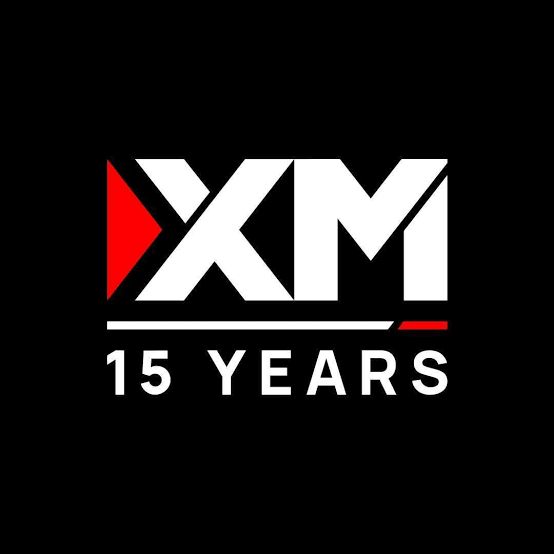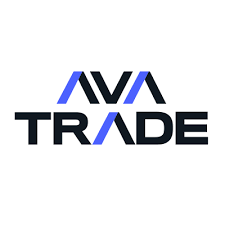Best Crypto Brokers – Complete Educational Guide
Cryptocurrency trading has emerged as a major financial market, offering unique opportunities and challenges. This comprehensive educational guide explains how to evaluate crypto brokers using measurable criteria: all‑in trading costs, execution behavior, platform capabilities, security measures, and risk controls. Educational only; use demo accounts before risking capital.
Educational Note: This guide is for educational purposes only. Cryptocurrency trading carries extremely high risk due to extreme volatility, regulatory uncertainty, and security concerns. Prices can fluctuate wildly in short periods. You should only trade with money you can afford to lose completely.
Recommended Brokers 2025
Educational access and demo-first practice. No investment advice.
Table of Contents
Understanding Crypto Trading
- Crypto Trading Basics
- Types of Crypto Products
- Crypto Market Hours & Volatility
- Advantages of Crypto Trading
- Risks of Crypto Trading
Evaluating Crypto Brokers
Broker Comparisons
Trading Strategies & Security
Crypto Trading Basics
Cryptocurrency trading involves speculating on the price movements of digital currencies like Bitcoin, Ethereum, and thousands of altcoins. Unlike traditional financial markets, crypto markets operate 24/7, offering continuous trading opportunities but also requiring constant vigilance.
The cryptocurrency market emerged in 2009 with the creation of Bitcoin by the anonymous entity Satoshi Nakamoto. Since then, the market has grown exponentially, with thousands of cryptocurrencies now available for trading. The total market capitalization of all cryptocurrencies has reached over $1 trillion at various points, though it experiences extreme volatility.
Key Characteristics of Crypto Markets
- 24/7 Operation: Crypto markets never close, unlike traditional stock exchanges
- High Volatility: Prices can swing dramatically in short periods
- Global Accessibility: Trade from anywhere with internet access
- Decentralization: Most cryptocurrencies operate without central authority
- Transparency: Blockchain technology provides public transaction records
- Innovation Pace: Rapid development of new projects and technologies
Important Note: While cryptocurrency trading offers significant profit potential due to high volatility, it also carries extreme risk. Many cryptocurrencies have lost most of their value, and even established coins can experience sudden, dramatic price drops.
Types of Crypto Trading Products
When trading cryptocurrencies through brokers, you typically have access to several different product types, each with distinct characteristics:
Spot Trading
Spot trading involves buying and selling actual cryptocurrencies with immediate settlement. When you buy Bitcoin spot, you're purchasing the actual Bitcoin token that can be withdrawn to your personal wallet.
Crypto CFDs
Contracts for Difference (CFDs) allow you to speculate on price movements without owning the underlying cryptocurrency. This enables leverage trading and the ability to go short (profit from price decreases).
Crypto Futures
Futures contracts obligate the buyer to purchase, or the seller to sell, a specific cryptocurrency at a predetermined future date and price. These are popular for hedging and leveraged speculation.
Crypto Options
Options give the holder the right, but not the obligation, to buy or sell a cryptocurrency at a specific price on or before a certain date. These can be used for sophisticated strategies and risk management.
| Product Type | Ownership | Leverage | Settlement | Best For |
|---|---|---|---|---|
| Spot Trading | Yes | Usually low or none | Immediate | Long-term holders, actual users |
| CFDs | No | High (up to 1:100+) | Cash | Short-term speculation, hedging |
| Futures | No | High (up to 1:100+) | Cash or physical | Advanced traders, institutions |
| Options | No | Very high | Cash or physical | Sophisticated strategies |
Crypto Market Hours & Volatility
Unlike traditional financial markets that have specific opening and closing times, cryptocurrency markets operate 24 hours a day, 7 days a week, 365 days a year. This continuous operation presents both opportunities and challenges for traders.
Understanding Crypto Volatility Patterns
Cryptocurrency volatility tends to follow certain patterns:
- Asian Session (00:00-08:00 UTC): Often lower volatility with occasional spikes from Asian market news
- European Session (08:00-16:00 UTC): Increasing activity as European traders enter markets
- US Session (16:00-24:00 UTC): Typically highest volatility with US market participation
- Weekend Trading: Often lower liquidity but can experience unexpected moves
- Major News Events: Regulatory announcements, technological developments can cause extreme volatility at any time
Volatility Example: Bitcoin Daily Moves
While traditional assets might see 1-2% daily moves, cryptocurrencies regularly experience:
- Normal day: 3-5% price movement
- Volatile day: 10-20% price movement
- Extreme volatility: 30%+ price movement
This highlights why position sizing and risk management are critically important in crypto trading.
Advantages of Crypto Trading
24/7 Market Access
Trade anytime, anywhere without waiting for market openings. This flexibility accommodates different schedules and time zones.
High Volatility
Significant price movements create more frequent trading opportunities compared to traditional markets.
Global Accessibility
Access crypto markets from anywhere with internet connection, often with lower barriers to entry than traditional finance.
Diversification
Cryptocurrencies have low correlation with traditional assets, providing portfolio diversification benefits.
Innovation Exposure
Gain exposure to blockchain technology and digital innovation through cryptocurrency investments.
Leverage Opportunities
Many brokers offer leverage on crypto products, allowing amplified positions (with amplified risk).
Risks of Crypto Trading
Extreme Volatility
Prices can move dramatically in short periods, leading to significant gains or losses quickly.
Regulatory Uncertainty
Changing regulations across jurisdictions can dramatically impact prices and trading availability.
Security Risks
Exchange hacks, wallet vulnerabilities, and phishing attacks can lead to irreversible losses.
Liquidity Risk
Some cryptocurrencies have low trading volumes, making entry/exit difficult at desired prices.
Technological Risk
Network issues, smart contract bugs, or protocol changes can impact cryptocurrency values.
Leverage Risk
High leverage combined with high volatility can lead to rapid, significant losses exceeding deposits.
Risk Warning: According to various studies, a significant majority of retail crypto traders lose money. The combination of high volatility, leverage, and emotional trading creates challenging conditions for consistent profitability. Never invest more than you can afford to lose completely.
Regulation & Security of Crypto Brokers
The regulatory landscape for cryptocurrency trading is complex and varies significantly by jurisdiction. When choosing a crypto broker, understanding their regulatory status and security measures is critically important for protecting your funds.
Crypto Broker Regulation Types
| Regulatory Approach | Description | Key Protections | Examples |
|---|---|---|---|
| Traditional Financial Regulators | Brokers regulated as financial services providers | Segregated funds, compensation schemes, dispute resolution | FCA, ASIC, CySEC regulated brokers |
| Dedicated Crypto Regulators | Specific cryptocurrency licensing regimes | Compliance requirements, reporting, some consumer protection | NYDFS BitLicense, Gibraltar DLT providers |
| Minimal Regulation | Operating in jurisdictions with limited oversight | Few formal protections, reliance on company reputation | Some offshore brokers |
| Unregulated | No formal regulatory oversight | No formal protections, highest risk | Some decentralized exchanges |
Security Measures to Look For
Cold Storage
The majority of customer crypto funds should be stored in offline cold wallets, protected from online attacks.
Two-Factor Authentication
Mandatory 2FA for account access and withdrawals provides critical account security.
Insurance Coverage
Some brokers carry insurance against theft or hacking incidents.
Proof of Reserves
Regular audits proving the broker holds sufficient reserves to cover customer balances.
Security Tip: Always enable all available security features, use unique passwords, and beware of phishing attempts. For significant amounts, consider transferring crypto to your own secure hardware wallet rather than leaving large balances on exchange platforms.
Crypto Trading Costs Comparison
Trading costs can significantly impact your profitability, especially in the high-frequency environment of crypto markets. When comparing crypto brokers, consider these key cost factors:
Average Spreads Comparison (in percentage or pips)
| Broker | Bitcoin (BTC) | Ethereum (ETH) | Litecoin (LTC) | Ripple (XRP) | Cardano (ADA) |
|---|---|---|---|---|---|
| Deriv | 0.75% | 1.2% | 1.5% | 1.8% | 2.0% |
| HFM | 0.50% | 0.9% | 1.2% | 1.5% | 1.8% |
| Exness | 0.30% | 0.6% | 0.9% | 1.2% | 1.5% |
| XM | 0.80% | 1.3% | 1.6% | 1.9% | 2.2% |
| AvaTrade | 0.95% | 1.4% | 1.7% | 2.0% | 2.3% |
Commission & Financing Costs
| Broker | Commission (per trade) | Overnight Financing (Long) | Overnight Financing (Short) | Withdrawal Fee |
|---|---|---|---|---|
| Deriv | $0 | −0.05% | −0.03% | Network fee |
| HFM | $0-$5 | −0.04% | −0.02% | Network fee |
| Exness | $0 | −0.03% | −0.01% | Network fee |
| XM | $0 | −0.06% | −0.04% | Network fee + $15 |
| AvaTrade | $0 | −0.07% | −0.05% | Network fee |
Note: Spreads can vary significantly depending on market conditions, with typically wider spreads during periods of high volatility or low liquidity. Some brokers offer different account types with varying cost structures.
Trading Platforms & Tools for Crypto
The trading platform is your gateway to crypto markets. Different platforms offer varying features, charting capabilities, and order types specifically designed for cryptocurrency trading.
Platform Comparison
| Broker | Primary Platform | Crypto-Specific Features | Mobile Trading | Advanced Charting | API Access |
|---|---|---|---|---|---|
| Deriv | Deriv MT5, DTrader | Crypto synthetics, volatility indices | Yes | Advanced | Limited |
| HFM | MT4, MT5, HF App | Wide crypto selection, copy trading | Yes | Advanced | Yes |
| Exness | MT4, MT5, Exness Terminal | Instant execution, minimal slippage | Yes | Advanced | Yes |
| XM | MT4, MT5 | Crypto CFDs, educational resources | Yes | Advanced | Limited |
| AvaTrade | MT4, MT5, AvaTradeGO | Dedicated crypto platform, AvaSocial | Yes | Advanced | Yes |
Essential Crypto Trading Tools
| Tool Type | Description | Importance for Crypto |
|---|---|---|
| Volatility Indicators | ATR, Bollinger Bands, Keltner Channels | Critical for position sizing in high-volatility environment |
| On-Chain Analytics | Wallet movements, exchange flows, network metrics | Provides fundamental insights beyond price action |
| Social Sentiment Tools | Social media monitoring, sentiment analysis | Crypto markets heavily influenced by social sentiment |
| Arbitrage Finders | Price differences across exchanges | Opportunities due to market fragmentation |
| Tax Reporting | Automated trade tracking for tax purposes | Essential due to complex crypto tax regulations |
Cryptocurrency Coverage
The range of cryptocurrencies available for trading varies significantly between brokers. While most offer major coins like Bitcoin and Ethereum, the selection of altcoins can differ substantially.
Cryptocurrency Selection Comparison
| Broker | Major Coins | Altcoins | DeFi Tokens | Metaverse/NFT | Total Pairs |
|---|---|---|---|---|---|
| Deriv | 5+ | 10+ | Limited | No | 15+ |
| HFM | 10+ | 20+ | 5+ | 3+ | 35+ |
| Exness | 8+ | 15+ | 3+ | 2+ | 25+ |
| XM | 6+ | 12+ | 2+ | 1+ | 20+ |
| AvaTrade | 10+ | 18+ | 4+ | 3+ | 30+ |
Popular Cryptocurrency Categories
Store of Value
Bitcoin (BTC), Litecoin (LTC), Bitcoin Cash (BCH)
Smart Contract Platforms
Ethereum (ETH), Cardano (ADA), Solana (SOL)
DeFi Tokens
Uniswap (UNI), Aave (AAVE), Compound (COMP)
Metaverse & Gaming
Decentraland (MANA), The Sandbox (SAND), Axie Infinity (AXS)
Meme Coins
Dogecoin (DOGE), Shiba Inu (SHIB)
Stablecoins
Tether (USDT), USD Coin (USDC), Dai (DAI)
Trading Tip: While having access to many cryptocurrencies can be appealing, most successful crypto traders focus on a handful of major coins with higher liquidity and more predictable behavior. Newer altcoins often have higher risk but also higher potential returns.
Deriv Crypto Review
Regulation
MFSA (Malta), Labuan FSA (Malaysia), VFSC (Vanuatu)
Minimum Deposit
$5 (varies by account type)
Leverage
Up to 1:100 (on crypto synthetics)
Crypto Trading Features
- Crypto synthetic products for 24/7 trading
- Volatility indices based on crypto market movements
- Range of major cryptocurrencies as CFDs
- User-friendly DTrader platform for quick trading
- MT5 available for advanced charting and analysis
Pros
- Innovative synthetic products not dependent on underlying liquidity
- Low minimum deposit accessible to all traders
- User-friendly platforms suitable for beginners
- Wide range of educational materials
- Competitive spreads on major crypto pairs
Cons
- Limited direct cryptocurrency offerings (mostly synthetics and CFDs)
- Not available to residents of many countries including USA
- Limited regulatory oversight compared to some competitors
- No physical cryptocurrency withdrawal available
Best For:
Traders interested in synthetic crypto products, beginners with small accounts, and those looking for innovative trading instruments beyond traditional spot trading.
HFM Crypto Review
Regulation
CySEC (Cyprus), FSCA (South Africa), FCA (UK)
Minimum Deposit
$0 (varies by account type)
Leverage
Up to 1:25 (on crypto CFDs)
Crypto Trading Features
- Wide selection of cryptocurrency CFDs
- Copy trading platform for social trading
- MT4 and MT5 platforms with advanced tools
- Proprietary HF App for mobile trading
- Regular market analysis and educational content
Pros
- Strong regulatory framework with multiple licenses
- No minimum deposit on some account types
- Wide range of cryptocurrencies available
- Competitive spreads and fast execution
- Excellent educational resources and customer support
Cons
- Not available to US residents
- CFD-only, no spot cryptocurrency trading
- Limited leverage compared to some competitors
- Withdrawal fees on some payment methods
Best For:
Traders looking for a well-regulated broker with a wide selection of crypto CFDs, social trading features, and strong educational support.
Exness Crypto Review
Regulation
CySEC (Cyprus), FCA (UK), FSCA (South Africa)
Minimum Deposit
$1 (varies by account type)
Leverage
Up to 1:50 (on crypto CFDs)
Crypto Trading Features
- Instant execution with minimal slippage
- Wide range of cryptocurrency pairs
- MT4, MT5, and proprietary Exness Terminal
- Free VPS hosting for automated trading
- Multi-currency account support
Pros
- Extremely low minimum deposit requirements
- Very competitive spreads, especially on major pairs
- Instant withdrawals with no fees on many methods
- User-friendly platforms with mobile trading apps
- Strong global presence with multi-language support
Cons
- Not available to US, UK, and EU residents in some cases
- Limited educational resources compared to some competitors
- Customer support quality varies by region
- CFD-only, no spot cryptocurrency trading
Best For:
Traders looking for low-cost crypto CFD trading with small account sizes, and those prioritizing fast execution and withdrawals.
XM Crypto Review
Regulation
ASIC (Australia), CySEC (Cyprus), FSC (Belize)
Minimum Deposit
$5
Leverage
Up to 1:25 (on crypto CFDs)
Crypto Trading Features
- Selection of major cryptocurrency CFDs
- MT4 and MT5 platforms with full functionality
- Extensive educational resources including live webinars
- Negative balance protection on all accounts
- Multiple account types including Islamic accounts
Pros
- Strong regulatory framework with multiple licenses
- Low minimum deposit makes it accessible to all traders
- Extensive educational resources including live webinars
- Negative balance protection on all accounts
- Multiple account types including Islamic accounts
Cons
- Not available to US residents
- Limited cryptocurrency selection compared to some competitors
- Higher spreads on some exotic crypto pairs
- Withdrawal processing can be slow with some methods
Best For:
Beginners and intermediate traders looking for comprehensive educational resources, strong customer support, and a well-regulated trading environment for crypto CFDs.
AvaTrade Crypto Review
Regulation
Central Bank of Ireland, ASIC, FSCA, FSA, ADGM
Minimum Deposit
$100
Leverage
Up to 1:25 (on crypto CFDs)
Crypto Trading Features
- Dedicated crypto trading platform (AvaTradeGO)
- Wide selection of cryptocurrency CFDs
- Social trading through AvaSocial
- MT4 and MT5 platforms with full functionality
- Options trading available on some cryptocurrencies
Pros
- Extensive regulatory oversight across multiple jurisdictions
- Dedicated mobile app for crypto trading
- Social trading features for strategy sharing
- Comprehensive educational resources and market analysis
- Strong focus on automated trading solutions
Cons
- Higher minimum deposit than some competitors
- Not available to US residents
- Inactivity fees after just 3 months
- CFD-only, no spot cryptocurrency trading
Best For:
Traders looking for a well-regulated broker with dedicated crypto trading tools, social trading features, and multiple platform options.
Crypto Security Best Practices
Security is paramount in cryptocurrency trading. Unlike traditional finance where chargebacks and fraud protection may exist, crypto transactions are typically irreversible. Implementing strong security practices is essential for protecting your funds.
Essential Security Measures
Two-Factor Authentication (2FA)
Always enable 2FA on all exchange and wallet accounts. Use authenticator apps rather than SMS when possible.
Hardware Wallets
For significant amounts, use hardware wallets (Ledger, Trezor) for cold storage rather than keeping funds on exchanges.
Secure Password Practices
Use unique, complex passwords for each crypto service. Consider a password manager for secure storage.
Phishing Awareness
Be extremely cautious of emails, messages, and websites impersonating legitimate services. Always verify URLs.
Wallet Security Comparison
| Wallet Type | Security Level | Convenience | Best For | Examples |
|---|---|---|---|---|
| Hardware Wallets | Very High | Low | Long-term storage, large amounts | Ledger, Trezor |
| Mobile Wallets | Medium | High | Small amounts, daily transactions | Trust Wallet, Exodus |
| Desktop Wallets | Medium-High | Medium | Regular trading, moderate amounts | Exodus, Electrum |
| Exchange Wallets | Low-Medium | Very High | Active trading, small amounts | Binance, Coinbase |
| Paper Wallets | Very High | Very Low | Ultra-long-term storage | Manual generation |
Security Warning: Never share your private keys or seed phrases with anyone. Legitimate services will never ask for this information. Be extremely cautious of "support" personnel contacting you unexpectedly, as these are often scammers.
Crypto Trading Strategies
Successful crypto trading requires well-defined strategies that account for the unique characteristics of cryptocurrency markets, including high volatility, 24/7 operation, and different market dynamics compared to traditional assets.
Popular Crypto Trading Strategies
| Strategy | Timeframe | Description | Risk Level |
|---|---|---|---|
| Trend Following | Days to Weeks | Identify and trade in the direction of established crypto trends | Medium |
| Mean Reversion | Hours to Days | Trade against extreme price movements expecting return to average | High |
| Breakout Trading | Hours to Days | Enter positions when price breaks through key support/resistance | High |
| Arbitrage | Minutes to Hours | Exploit price differences between different exchanges | Low-Medium |
| HODLing | Months to Years | Buy and hold for long-term appreciation regardless of volatility | Medium-High |
| Dollar-Cost Averaging | Months to Years | Regular fixed investments regardless of price to average cost | Low-Medium |
Strategy Selection Considerations
- Time Commitment: Day trading requires constant monitoring while swing trading needs less frequent attention
- Risk Tolerance: Higher volatility strategies require higher risk tolerance
- Market Conditions: Some strategies work better in trending markets, others in ranging markets
- Capital Requirements: Certain strategies like arbitrage may require significant capital
- Technical Skill: Advanced strategies require deeper technical knowledge
Trading Tip: The most successful crypto traders often combine multiple strategies and adapt to changing market conditions. Avoid emotional trading and stick to your predefined strategy even during periods of extreme volatility.
Risk Management for Crypto Trading
Effective risk management is critically important in crypto trading due to the extreme volatility and 24/7 nature of markets. Without proper risk controls, significant losses can occur rapidly.
Essential Crypto Risk Management Techniques
Conservative Position Sizing
Risk only 1-2% of capital per trade. In high-volatility crypto markets, this is especially important to survive drawdowns.
Wider Stop-Losses
Use wider stops based on volatility indicators (ATR) rather than arbitrary percentages to avoid being stopped out by normal fluctuations.
Leverage Management
Use minimal leverage in crypto trading. High leverage combined with high volatility can lead to rapid liquidation.
Portfolio Diversification
Spread risk across different cryptocurrencies with low correlation. Avoid overconcentration in single assets.
Risk Management Calculation Example
Example: Calculating Crypto Position Size with Volatility Adjustment
Account Balance: $10,000
Risk Per Trade: 1% = $100
Trade: Buy Bitcoin at $40,000 with stop loss at $38,000
Risk in Price: $40,000 - $38,000 = $2,000
Position Size: $100 risk ÷ $2,000 risk per Bitcoin = 0.05 BTC
Dollar Value: 0.05 BTC × $40,000 = $2,000 position
You should buy 0.05 BTC ($2,000) to risk exactly 1% of your account on this trade.
Risk Warning: Crypto markets can experience "flash crashes" where prices drop dramatically in minutes then recover. These events can trigger stop losses at worst possible prices. Consider using stop-limit orders rather than market orders to have more control over execution prices.
Crypto Tax Considerations
Cryptocurrency taxation varies significantly by jurisdiction but is becoming increasingly regulated worldwide. Understanding your tax obligations is essential for compliant trading and avoiding potential penalties.
Common Crypto Tax Events
| Tax Event | Description | Tax Implications |
|---|---|---|
| Trading | Buying and selling cryptocurrencies | Capital gains/losses on each trade |
| Spending | Using crypto to purchase goods/services | Disposal of asset potentially creating taxable event |
| Mining/Staking | Earning crypto through validation | Ordinary income at fair market value when received |
| Airdrops | Receiving free tokens | Ordinary income at fair market value when received |
| Hard Forks | Receiving new coins from chain splits | Ordinary income at fair market value when received |
Tax Planning Strategies
- Record Keeping: Maintain detailed records of all transactions, including dates, amounts, and values
- Tax-Loss Harvesting: Strategically realize losses to offset capital gains
- Holding Periods: In some jurisdictions, long-term holdings receive preferential tax rates
- FIFO Method: Many tax authorities require First-In-First-Out accounting for disposals
- Professional Advice: Consult with tax professionals experienced in cryptocurrency
Tax Tip: Use crypto tax software to automatically track trades and generate tax reports. These tools can save significant time and ensure accuracy in your tax reporting. Popular options include Koinly, CoinTracking, and TokenTax.
Conclusion: Choosing the Right Crypto Broker
Selecting the right crypto broker depends on your individual trading needs, experience level, risk tolerance, and geographic location. There is no single "best" crypto broker for everyone, as different traders prioritize different features.
When making your decision, prioritize:
- Security and Regulation: Ensure adequate protections for your funds through regulation and security measures
- Trading Costs: Consider spreads, commissions, and financing costs that impact profitability
- Product Offerings: Match the broker's products (spot, CFDs, futures) to your trading strategy
- Platform and Tools: Choose platforms that match your technical needs and trading style
- Cryptocurrency Selection: Ensure the broker offers the specific cryptocurrencies you want to trade
Remember that successful crypto trading requires more than just finding the right broker. It demands thorough education, disciplined risk management, emotional control, and continuous adaptation to this rapidly evolving market.
Final Warning: Cryptocurrency trading carries extremely high risk and may not be suitable for most investors. The extreme volatility, regulatory uncertainty, and security risks mean you should only trade with money you can afford to lose completely. Past performance does not guarantee future results, and many traders lose money trading cryptocurrencies.
Start Your Crypto Education Journey
The best way to evaluate crypto brokers is to open demo accounts and test their platforms with virtual funds. Most brokers offer free demo accounts that allow you to practice trading without risking real money.
Recommended brokers for education and demo practice: Deriv · Deriv (alt) · HFM · Exness · AvaTrade · XM · XM (alt).
Educational Recommendation:
Start with small amounts if transitioning to live trading, continue learning through reputable educational resources, and never invest more than you can afford to lose. The crypto market's 24/7 nature requires discipline to avoid overtrading and emotional decisions.




